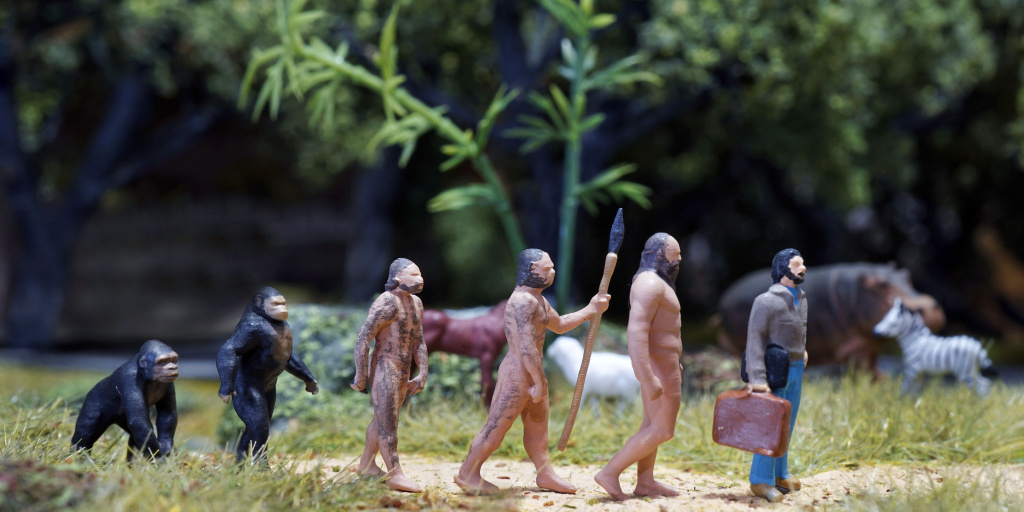Learn what the concept of time preference means and why ours is changing using a four-paragraph history of civilisation, an episode of Atlanta and Bitcoin.

If you asked the average person in the street what two things they would want more of, the likely answer would be time and money. Joe Public is working harder for less and increasingly living day-to-day, regressing back toward a subsistence-style existence. Economists might explain it through changes in time preference. But what is time preference, and why is it changing? We’ll avoid the textbook definitions and instead use a four-paragraph history of civilisation, an episode of Atlanta and Bitcoin.
What is time preference?
Economists describe time preference as the relative valuation placed on receiving a good or some cash at an earlier date compared with receiving it later. To Joe Public, this admittedly might sound like a meaningless word salad. The idea rests on the rational choice between spending money now for a given benefit or the reward that might come from investing in something that will provide a better payoff available in the future.
Greek philosophers provide a more poetic description of time preference ‘Society grows when men plant trees that they know they will never sit under’. Though this explanation makes it a little easier to get the gist of time preference, it’s still removed from modern life.
Society grows when men plant trees that they know they will never sit under.
Greek Philosophy
Benjamin Franklin’s commitment to the health and longevity of the fledgling United States inspired him in 1790 to invest £1,000 (roughly £140,000 today) for projects that, given compounded interest, would benefit centuries in the future. £ 5 million was distributed in 1990 to projects in Philadelphia and Boston.
As much as Frankin’s vision of longtermism is more accessible, we can get a better illustration of time preference grounded in 21st-century reality from Series 1 of Atlanta.
Bringing economics down to street level
Atlanta revolves around the daily struggles of Ernie ‘Earn’ Marks, a black Princeton dropout trying to redeem himself to his ex-girlfriend, Vanessa, providing for their child by managing his aspiring rapper cousin Paper Boi.
The FX Series won multiple awards for mixing comedy and surrealist themes to expose the gritty reality that black men face in one of America’s most deprived cities, struggling against prejudice and the absence of opportunity.
Episode four, “The Streisand Effect”, provides a brilliant illustration of the concept of time preference and its relation to poverty.
Desperate for money, Earn decides to pawn his phone for some desperately needed short-term cash – classic high time preference behaviour.
Paper Boi’s best friend Darius, a pothead street philosopher and visionary, spots a katana, a type of Japanese sword, and convinces him to instead ‘trade up’ for a much bigger return.
Darius then, via his eclectic network, exchanges the sword for a male Cane Corso, a popular breed of guard dog.
Expecting to sell the dog for cash, Earn then follows Darius, cryptic as ever, to a farm on the outskirts of Atlanta, where the dog is left in the custody of a farmer. Given the urgency of his financial struggle, Earn is mortified by the idea that he’s traded ready cash for an uncertain future reward.
Fast forward a few episodes and several months, with the transactions forgotten among the daily struggles of trying to make ends meet, Darius casually hands Ern an envelope for $4,000. His share of the proceeds of puppies bred from his Cane Corso.
Though his instinct was to do the opposite, by delaying the sale of his phone (immediate gratification) and investing in puppy breeding (delayed gratification) via a swap for a Samurai Sword, Earn made a x40 better return. That’s bringing economics down to street level to explain time preference, albeit via a slightly surreal journey.
Why has our time preference become more urgent?
The Atlanta sketch provides a great illustration of what time preference means and why poverty heightens it, yet it doesn’t help explain why more and more people find themselves in Ern’s position in the first place.
We must understand how our awareness of time preference first emerged to answer that question. Around 12,000 years ago, Homo Sapiens gradually switched from a nomadic hunter-gatherer existence to staying in one place subsisting from agriculture.
Anthropologists aren’t exactly sure why we decided to ditch the spear for the plough, but an essential component was the ability to think and plan for the future – lowering time preference.
Instead of expending all our energy on whatever we could kill or forage day-to-day, our ancestors started doing things that would provide a reward at some point in the future, like growing crops or, more importantly, brewing beer. The importance of this change to civilisation as we know it can’t be stressed enough.
Pretty soon, the first cities were springing up in Mesopotamia with all the trappings of what we would consider civic society. There was no Uber just yet, but early forms of money emerged to enable us to exchange the surplus of the growing number of things we were producing. Rules were established to govern ownership of property and trade, put in place by rulers enforced by the threat of evolving means of violence.
The three axes of civilisation – rules, rulers & money
Four paragraphs might not do justice to human development over the last 10 millennia, but civilisation has essentially grown along these three key axes powered by the willingness to invest in the future. Money has evolved, the rules have become more complex, and the power of rulers has become more absolute as technology enabled them to be more violent.
Now, to understand why time preference might be flipping and the average person seeing life in similar terms to our nomadic ancestors – a daily struggle – you have to understand that the masses traded off security provided by those in power in return for allowing them to control money and make the rules. Unfortunately, that bargain has proved to be a bad one.
The minority in charge of the rules and the money have made out like bandits helped by armies they’ve paid to protect them. This is why the wealthiest 1% own almost 46% of the world’s wealth.
Despite all this talk of violence, Joe Public doesn’t live with a gun to his head (well, not in Western societies), so why have we fallen into the trap of being more indebted than ever and increasingly time-poor while an elite gathers all the meaningful stores of value?
We certainly haven’t lost the instinct to plan for the future, so what gives? Though there’s no smoking gun, the bargain that allows an elite to control money may provide a vital piece of the puzzle.
Over the last century, the rules around how money works have been turned on their head. Follow the link to a separate primer on the problem, but the tl’dr is that there is no restraint on creating money. Governments can create as much of it as they need so long as we retain trust in them.
Now, this might not seem like a problem, but remember, there’s no such thing as a free lunch, and it is the average person who’s been paying the bill for an unlimited money supply through inflation.
To get a sense of the problem, the US Dollar has lost 95% of its purchasing power since 1913, so it shouldn’t be a surprise that Joe Public feels poorer, especially those unable to generate wealth and store it in something other than cash.
Austrian Economics, Bitcoin & time preference
The doctrine of the Austrian school of economists, dating back to the early 20th century, highlighted the problem of centralised money creation as likely to cause this kind of issue, as well as the importance of low time preference thinking in countering it.
As the problems of ballooning money supply and the debt that governments pile on the population have become chronic, new forms of money utilising digital technology and cryptography have emerged.
Launched in 2009, Bitcoin is a new form of internet money characterised by digital scarcity and free of centralised control. Bitcoin attempts to solve the problem of governments inflicting inflation on the public to finance more debt.
It’s designed to reward low time preference behaviour, and outrageous gains have certainly rewarded those that have held hodled Bitcoin throughout its brief history, but despite the widespread Twitter memes that ‘Bitcoin fixes money’ it’s not a silver bullet for the problem of shrinking wallets and time horizons that we started with.
Poor people don’t have time for investments, because they’re too busy being poor.
Earn Marks, Atlanta, Episode Four, Series One “The Streisand Effect”
Time is a luxury for those that can afford it
We only have to look at El Salvador, which became the canary in the coal mine as the first country to make Bitcoin legal tender.
Ranked 111th by global GDP per capita, Salvadorians are among the poorest people in the world. Though their President, Nayib Bukeke, talks about monetary freedom and individual financial sovereignty, much of his behaviour mirrors those Rulers who have abused their power down the years.
Bukele launched his Bitcoin revolution by giving every citizen the equivalent of $30 in this new internet money, but we shouldn’t be surprised to hear that most of his needy citizens took the high time preference route and cashed it in rather than keep it for the future.
Despite the aspirations of the most well-meaning Bitcoin bros, the problem of shrinking time and money cannot be solved in isolation from the broader problems of social inequality.
Earn delivers a key line in that episode from Atlanta that provides the simplest explanation of why time and money are becoming increasingly scarce: “Poor people don’t have time for investments, because they’re too busy being poor.”
Economists describe time preference as the relative valuation placed on receiving a good or some cash at an earlier date compared with receiving it later.
High time preference means placing greater value on receiving a good or some cash earlier rather than later. In simpler terms, preferring cash right now rather than the promise of more money in the future.
Low time preference means placing greater value on receiving a good or some cash later rather than earlier. In simpler terms, preferring the promise of a future return over a lesser payment right now.
